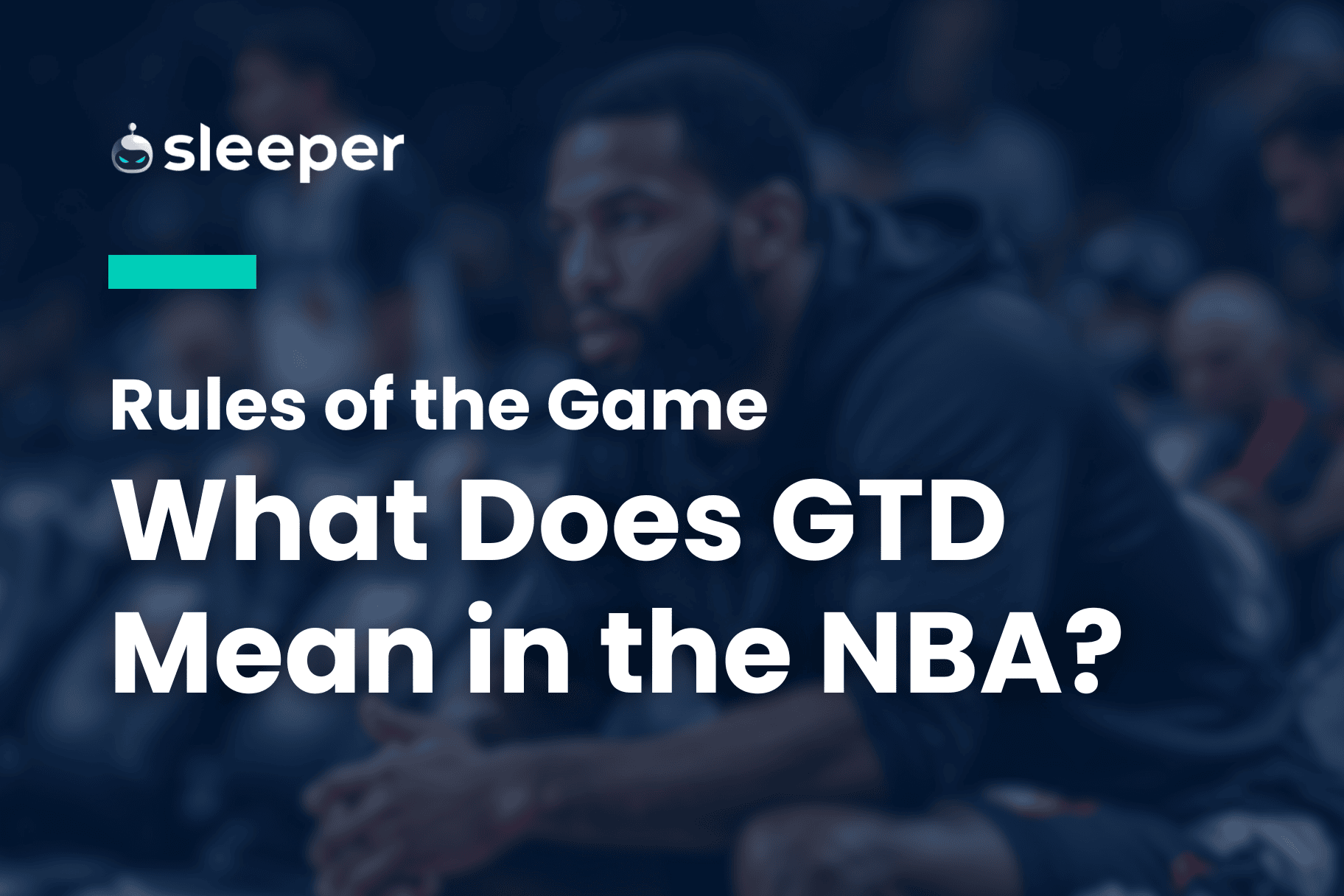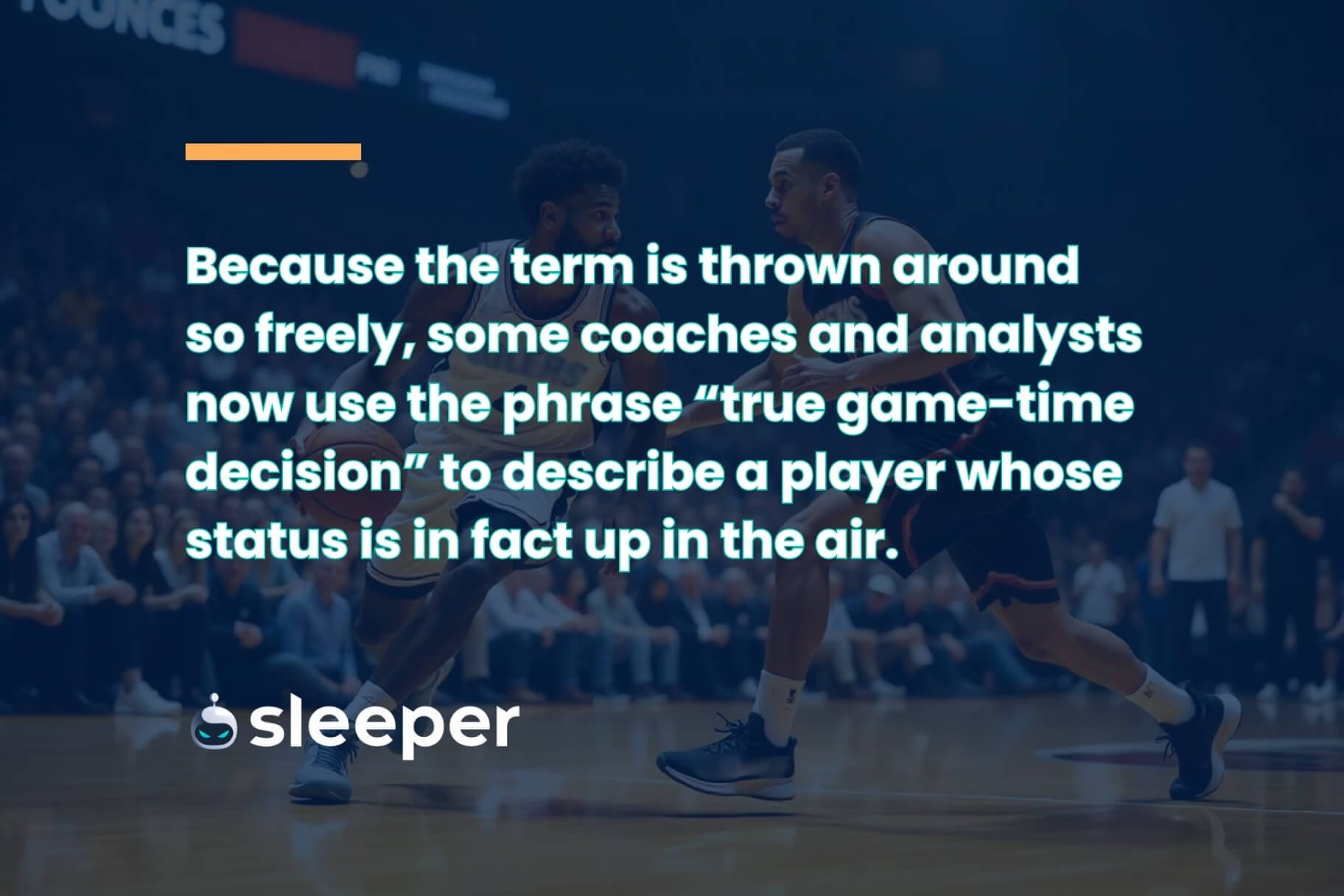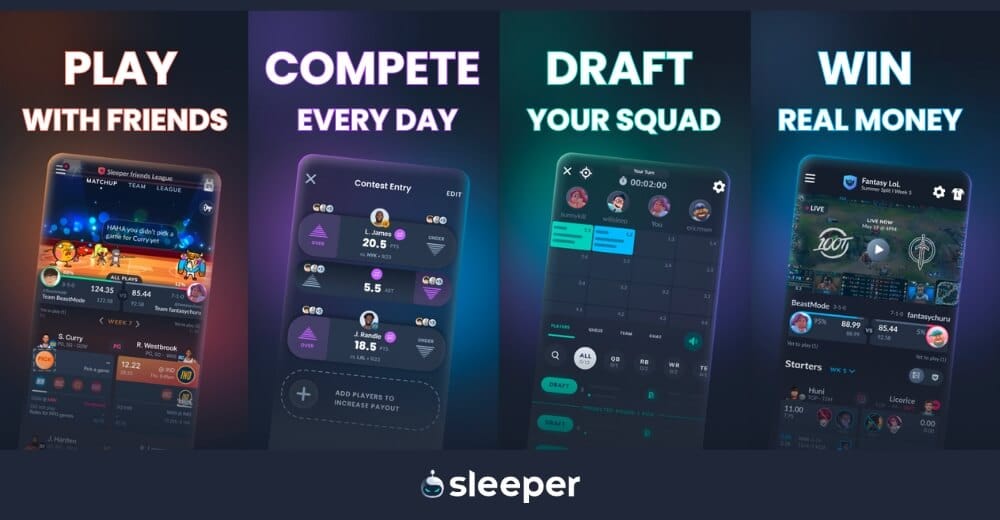Breaking down what GTD means, why this label is used, how GTD players can affect your fantasy basketball strategy and more.

If you play fantasy basketball, you have probably noticed the “GTD” label next to certain players’ names. Or if you’re an NBA fan, you have likely seen players described as a “GTD” leading up to tipoff.
If you’re uncertain about what that all means, you’ve come to the right place. Let’s break down what GTD stands for, why this label is used, how GTD players can affect your fantasy basketball strategy and more.
What Does GTD Mean in Basketball?
GTD stands for game-time decision, and it concerns a player’s availability for that night’s game.
If a player is a game-time decision, it means his availability for that night’s game is up in the air until right before tip-off.
It’s worth noting that on an NBA team’s official injury report, players can only be labeled as available, probable, questionable, doubtful or out for a contest.
However, a player who is questionable is often described as a game-time decision if it’s unclear whether he will play.
Understanding GTD Status in the NBA
If a player is described as a game-time decision, it means the player has a chance to play, but there’s no guarantee he will suit up.
Sometimes, a player will need to go through a pregame warmup to test his body and determine if he can play. At that point, it’s up to the team doctors and coaching staff to determine if the player will suit up or be a last-minute scratch.
If a player has been sidelined with an injury for a while, the team must determine the right time to activate him, so it might label the player as questionable and then make the decision just prior to tipoff several games in a row until ultimately deciding the individual is ready to play.
Also, if a player is dealing with an illness that could threaten his availability, the team will typically consider him a game-time decision. This allows the player to rest and get treatment and then see how he feels closer to tip-off before a decision must be made.
It’s worth noting that NBA teams are always looking for an edge against their opponents, so it’s possible that a team might list a player as questionable and describe him as a GTD even if in reality he is closer to doubtful, just so the other team has to prepare for the possibility of facing that player.
GTD in Fantasy Basketball: What It Means and Its Importance
Again, game-time decision isn’t an official designation used by NBA teams — it’s a description that gets thrown around for players who are designated as questionable. With that said, GTD is a designation that is used in fantasy basketball leagues.
For fantasy basketball managers, GTD is arguably the most frustrating designation because it's hard to predict whether you'll have that player in your lineup. Every NBA team is different in terms of how they handle players who are game-time decisions, so it feels like a guessing game as to whether you'll be able to start the player.
Also, since the final decision is made so close to tip-off, it's inconvenient that you have to check back right before tipoff to see if that player is active. If he can't go, you'll have to quickly pivot to a different player at the last minute.
If one of your players is labeled a game-time decision, you’ll need to stay informed regarding his status about an hour before tipoff. This is where player profiles in Sleeper’s fantasy basketball game come in handy, since they’ll keep you up-to-date on all the latest news about a player, including his availability for each game.
Once you see one of your players has the GTD tag, it’s probably a good idea to come up with a backup plan in place just in case you will need to sub him out.

Frequently Asked Questions
What is a True Game-Time Decision?
These days, the term game-time decision gets misused at times. There are instances when a player is labeled as a GTD, but he is clearly going to play. Because the term is thrown around so freely, some coaches and analysts have started to use the phrase “true game-time decision” to describe a player whose status is truly up in the air.
If a player is being described as a true game-time decision, it means even the coaching staff isn’t sure if he will play, and he probably has a 50-50 shot of being active that night. And even if he does play, there’s no guarantee that he’ll play his usual minutes or role, so he could come with some added risk or limitations.
What are the other injury designations?
Now that we’ve covered what GTD means, let’s explain the other designations that you might see while playing fantasy basketball (or any fantasy sports, for that matter):
- Probable - Very likely to play
- Questionable - Player has a 50-50 chance to play
- Doubtful - Player is very unlikely to play
- Out - Player will not play
- Suspended - Player is suspended and will not play
- IR - Player is critically injured and will not play
- PUP - Physically Unable to Perform and will not play
Where can I find updates on a player's status?
If you play in a Sleeper fantasy basketball league, simply click the player’s name to open his profile, which features the latest news surrounding availability, plus stats, projections, game log, his team’s depth chart, transaction history in your fantasy league, fantasy ranking and more.
You can also find updates about a player’s availability on X (formerly Twitter). Each team’s beat writers typically post updates from the head coach and then reveal which players are active once the team releases that information.
Join Sleeper and Start Dominating Fantasy Basketball
If you’re interested in starting your own fantasy basketball league or bringing your existing one to a new platform, Sleeper has you covered. There’s no better platform than Sleeper thanks to exclusive features like improved drafting experience, simplified league creation, the best commissioner tools, live scoring and stats, weekly league reports, each player's transaction history, voice and text chat, custom scoring and much more. Try a season-long league on Sleeper today.
And if you prefer Daily Fantasy Sports (DFS), give Sleeper Picks a try. You can maximize your winnings up to 100x by choosing whether you think players will surpass or fall short of their projected stat totals, and you can also follow live gamecasts as you compete.




